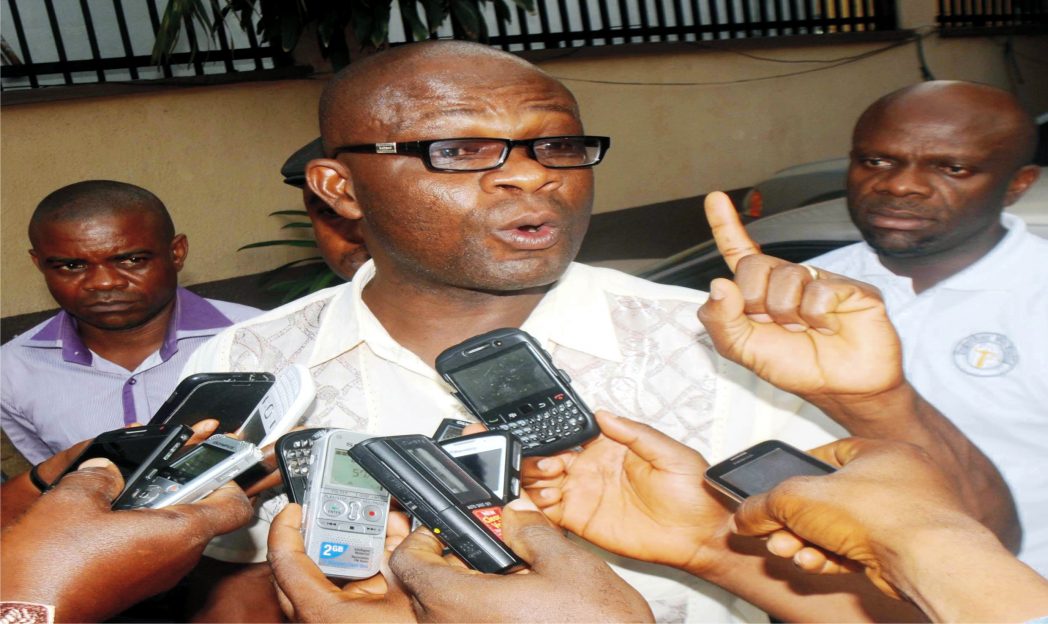The Federal Government has reaffirmed its continued commitment to driving Nigeria-First policy aimed at encouraging local manufacturers and improving the economy through the non-export sector.
This is as the National Assembly has revealed that a bill for establishing a Weights and Measures Centre is advancing.
Delivering the keynote address at the Opening Ceremony of the 2025 Nigerian International Trade Fair, in Lagos, Minister of Industry, Trade and Investment, (FMITI), Dr. Jumoke Oduwole, said that government would continue to promote locally made goods.
Oduwole stated that the fair was not only an opportunity to showcase the best of Nigerian products but ensuring that the country continues to accelerate its non-oil exports under the Renewed Hope Agenda.
The minister noted that the government’s reforms are working and demands a lot of support from all stakeholders.
In her words, “Already, our non-oil exports have grown by 14 per cent. Our exports to the rest of Africa was the fastest growing at 24 per cent last year Q1, year-on-year, CBN released the results at the end of Q1.
“Now, this shows us that our goods are in demand across Africa. Earlier this year, the Federal Ministry of Industry, Trade and Investment opened an air cargo corridor in partnership with Uganda Air, and we mapped 13 Southern and Eastern African countries who want Nigerian products. We understood that they want our fashion, they want our light manufacturing, our food, our snacks, plantain chips, chin chin.
“They also want our zobo, our shea butter, beauty products. The things we take for granted here, our slippers, our hair wigs, are things that are in demand across the continent. And so we’re here to support our Nigerian exhibitors and to welcome our friends across Africa and across the world.
“Exhibitors, buyers who are interested in purchasing, we’re interested in growing these businesses. So a business that is a small business this year should be a medium-sized business in the next five years. Each trade fair has its uses, each trade fair has its conveners, and really, to be honest, there cannot be too many.
“This trade fair, traditionally, has been the largest in the country, and we want to bring it back to its former glory. There’s nothing like a competition.
On her part, the Executive Director, Lagos International Trade Fair Complex Management Board, Vera Safiya Ndanusa, said the board would, in the coming months, champion structured and modernised regulatory frameworks for trade fairs and exhibitions.
She stressed that reviving the Tafawa Balewa Complex was part of a broader mission to strengthen confidence in the nation’s trade infrastructure, while stimulating industrial activity and showcasing the enormous potential of the nation’s citizens.
“Most importantly, we remain the only agency in Nigeria expressly mandated by law to organise trade fairs, and we intend to restore that statutory responsibility to the prominence it deserves ensuring coherence, quality, and national alignment in trade events across the country.
“We will be deepening our engagement with NACCIMA, whose partnership has historically anchored the success of organised trade in Nigeria, while also strengthening ties with ECOWAS, continental business groups, and international partners who share our vision for a more integrated African marketplace.
“In the coming months, we will champion a more structured and modernised regulatory framework for trade fairs and exhibitions, one that protects stakeholders, ensures standards, and positions Nigeria as a credible and well organised destination for regional and continental commerce”, she stated.
She noted that as Africa embraces the promise of the African Continental Free Trade Area, a new momentum was building across the continent.
“For Nigeria, AfCFTA is not just an economic framework; it is a pathway to industrialisation, job creation, and intra-African collaboration.
“This complex must play a central role in that journey. We intend to make this fairground a primary entry point for African trade, a marketplace where producers and buyers from across the continent meet, a logistics hub connected to regional value chains, a centre for cross-border SME activity, and a launchpad for Nigerian businesses looking to expand beyond our borders.
“To achieve this, we are intentionally expanding access to markets physically, economically, and digitally. We are working to make participation more affordable for SMEs, women-led enterprises, and young entrepreneurs. We are improving mobility within and around the complex. A truly vibrant trade ecosystem must be inclusive, and inclusivity begins with access,” she stated.
Chairman, House Committee on Commerce, Ahmed Munir, commended Ministry of Industry Trade and Investment, ED LITF and her team, for promoting the platform as a veritable marketplace of ideas, innovation, and partnership.
He said the event was a clear reflection of the economic agenda of the current administration, supported by Speaker Rt. Hon.Abbas Tajudeen.
According to him, “The House of Representatives recognises that the engine of our economy is the private sector, particularly our Micro, Small, and Medium Enterprises (MSMEs), which contribute nearly 50 per cent to our GDP and employ the vast majority of our citizens.
“To create the competitive environment they need, the National Assembly has been working assiduously to pass and amend vital legislation to enhance the Ease of Doing Business by Streamlining regulatory bottlenecks and reinforcing essential infrastructure to make business operations simpler and more predictable.”
He stressed that as policy makers they would continue to promote the “Nigeria First” Policy through robust legislative support, ensuring that government ministries and agencies prioritise locally manufactured goods in all public procurement processes. “This is our clear statement: We must buy Nigerian to build Nigeria.
“Also to ensure quality and standards, the bill for establishing a Weights and Measures Centre is advancing. Quality is not optional; rather, it is the key to consumer trust and international competitiveness,” he said.







